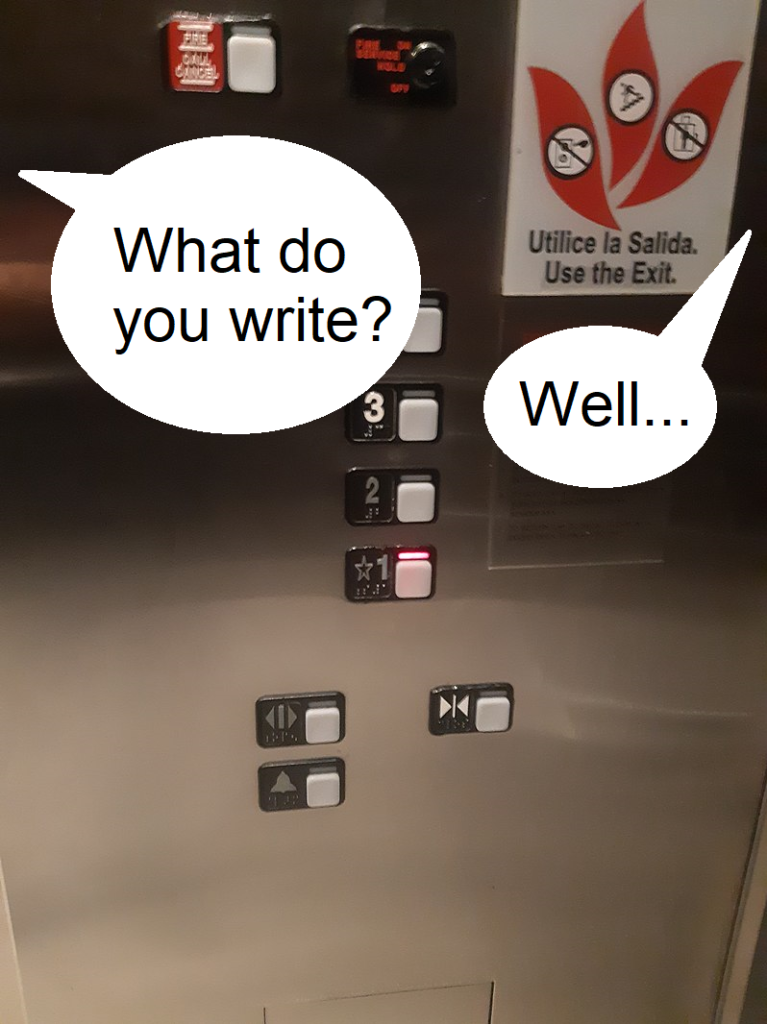You’ve just met someone new. Once they find out you’re a fiction writer, they might ask, “What do you write?” You have thirty seconds to answer. Go.
These interactions can happen anywhere—at a writers’ conference, at the store, at a bus stop, at a party, and, yes, even in an elevator. Every interaction is a chance to entice a new reader. Or a chance to flub it.
Let’s not flub this. Here are my tips for creating and delivering a masterful elevator pitch.
- Plan the pitch. Visualize the interaction. The person will ask you what you write about, but they’re really wondering if you write what they like to read. You’d like them to be a new reader, to buy your books. This is a chance to find out if those different goals intersect. Write down a four or five sentence answer you can deliver in thirty seconds. Rewrite these until they’re interesting, upbeat, and compelling. Remember, you’re answering a question about what you write, not selling a used car.
- Rehearse the pitch. Speak your sentences aloud, as if to a new acquaintance. Do this in the mirror. Smile. Make eye contact. Exude confidence and enthusiasm.
- Wait for the invitation. When the meeting occurs, don’t launch into your pitch. Let them ask the question, which may occur when they find out you’re a writer. They may not ask, which is a sign they’re not a potential reader.
- Speak naturally. Yes, you rehearsed, but don’t let your pitch sound rehearsed. Let your voice tone rise and fall normally, and avoid speaking in monotone. Don’t talk too fast.
- Smile and make eye contact. Just like you rehearsed it. The first reason for this is to make your pitch more compelling. There’s a second reason…
- Watch for signs of interest. As you’re speaking, watch the person’s eyes for signs of increased interest. If that occurs, alter your pitch to follow up on what you just said that perked their interest.
- Be ready for follow-up questions. The person might well ask, “What else have you written?” or “What are you writing now?” or “I like stories about [whatever]. Have you written anything like that?” Of course, the best follow-up question is, “Where can I find out more about your books?”
- Make the connection. If they ask for more information, be ready to provide it. You can offer to send an email. You can trade contact information using smartphones. You can mention your author website. You can even provide an author business card.
Soon you’ll be, as they say in the elevator biz, going up. But that’s only if you follow the wise advice of—
Poseidon’s Scribe
Please follow and like me:

